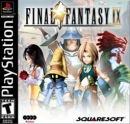Note that i did say "interesting", not "good". Just a collection of random thoughts(or ramdom, as they say in greener lands).
Today, sonic as a thing is so surrounded by sarcasm and molded by rage and sadness that is hard to look at is just as a collection of games. Everyone is tired of analysys about how the franchise is the biggest marketing stunt in the 90's, or how it didnt translated well to 3d because they were more worried about making the game play like the ads than making it work more gracefully, or how ken penders being alive and free is a menace for all kids in a radius of 100km and so on. What i want to do here, however, is just to look at the original game as a simple platformer of the early 90's.
And i want to do that because how the game plays, what it represents, and the type of answer it was to mario and nintendo is more interesting than all the consequences that followed it. Before the NES, videogames were basically designed for early arcades, by arcade developers that were mostly just programmers. Games were usually set in a single non-scrolling screen, with very rudimentar controls and even simpler objectives. They were made to be immediatly understood once you simply looked at the screen. When the Super mario bros game came, nintendo basically created(or,at least, made popular) the concept of incremental permutation of challenges. You would learn a mechanic, or how to avoid a certain enemy or obstacle, and then that would be presented again and again in different scenarios, with equally variants of difficulty.
And that worked so well that it is still how we judge good game design today. If a game kills you with a new trap or enemy that didnt appeared before, there's a fairly large amount of reviewers in the game press that would rush to call it lazy or bad implemented. It's a concept that is easy to understand and it feels fair, even if a bit predictable. However, designing a game is, by definition, not an exact science. And even if i do happen to agree that mario's imcrementional design choices are elegant and work very well, i usually am against the use of the term "good" in a objective sense. And i do think that thinking so, like many seem to do, can limit the potential of games as a medium.
So, to offer a contrapoint, here's where sonic comes. And it comes from the other wild side of videogame history. While the NES raised a generetion at home, with games designed to play in such settings, arcades had to think another way. As an arcade developer, you could present more visually impressive experiences than home consoles, and you could also make your own control scheme. You had, however, to still make money out of it. So games were made based on the reasoning that players would had to spent money to see the the ending, which basically meant games that required a fair amount of skill out of the gate. You would start, find an obstacle or enemy you were not ready to deal with and then die. Rise and repeat until you learn what you had to do to proceed. Sometimes a hidden move, sometimes the layout of the stage, and sometimes just the plain old memorization of boss patterns(snk fans know this very well). So, in a very broad and generic sense, while console games teached you the game in a more organic and "educational" way, arcade games evolved based on a sense of skill. To earn the right to go ahead, you should be good enough, and only the hundreds of experiences you had before would get you on that level.
Sega was a very prolific arcade developer, and so it isn't a surprise sonic came from that last side in of design phylosophy. The game was, fundamentally, about the joy of maintaining momentum. You would learn the layout of the stages and then figure out the way to retain speed for the longest amount of time possible. And, until you learned that, you would hit a lot of non telegraphed enemies and fall into some barely unavoidable death pits. It did, however, made a big change from the coin eating machines; it gave you almost infinite health. The ring system was made, i assume, because sonic could go so fast that mistakes would happen way too often, to the point a restart would feel too frustrating, even for arcade standards. It basically gave the less patient players the chance to bruteforce a lot of the game, which was a change that was incentivated by the choice of making it a home console game.
It does feel like a half-assed solution however. While it is true that in arcades people could just burn money to stack more chances to finish the game, when it is a system that is directly implemented into the game it robs it of the real grace of that type of challenge. As long as you keep track of one ring, you're good to go. It breaks the game and that is an unfortunate side of that choice.
Over the years, it is clear which side became the dominant one. As home consoles thrived, the death of arcades in the west also represented the death of sega consoles and sonic's original principles. Nintendo's incrementional design is now the default, and it is the standard by which all other games, past and future, are judged against. So while i am not saying that it isn't something you can't do(in fact by all means do that if that's how you define a good experience yourself), i think it's a good mentality to recognize that; had things went in a different way with sega and the arcade marketing in general, what we consider good game design or not would have a very different look to it.
























































